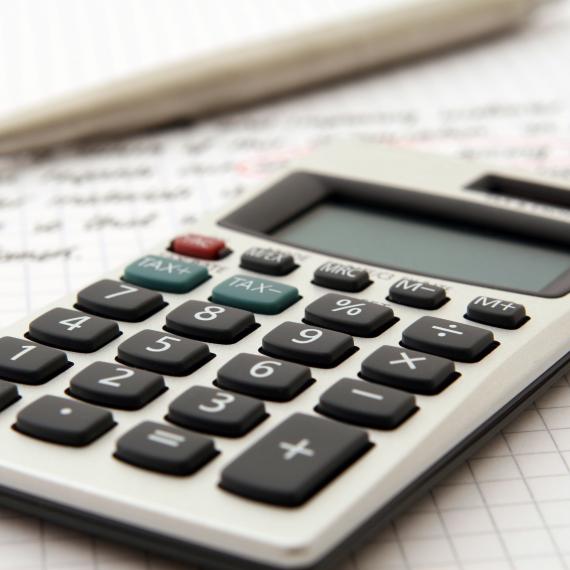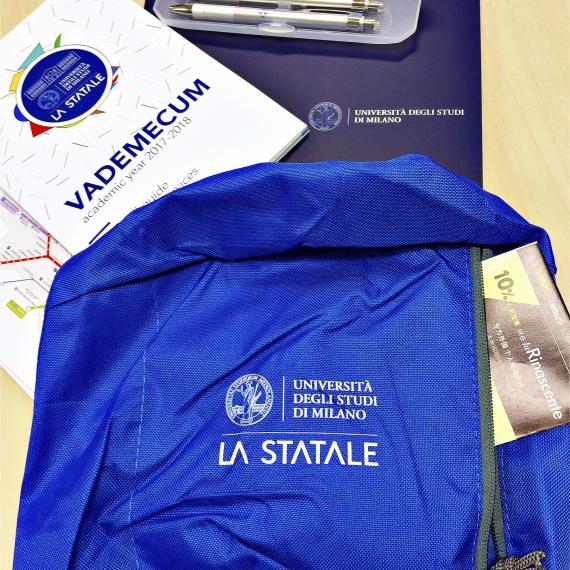Studying Earth Sciences
The bachelor’s and master’s degrees satisfy the European quality standard for university programs on Earth Sciences and aim to provide specific skills regarding the geological, mineralogical, petrographic-geochemical and geophysical disciplines, and their applications.
The objective of the Bachelor in Geological sciences (Laurea in Scienze geologiche) and of the Master in Earth sciences (Laurea magistrale in Scienze della Terra) is to train geologists who are able to:
- carry out analyses of geological systems and processes, of their evolution over time;
- develop basic and applied geological research in different sectors of the public and private workplace, including both academic and industrial fields;
- recognize and predict the effects of the interaction between geological processes, human interventions and global climate changes;
- identify the vulnerability of sites, the danger of geological phenomena and interactions with anthropic systems, providing for the management and mitigation of risk and for the preservation of the quality of complex natural realities;
- operate in situations dealing with natural and synthetic materials, in order to manage the instrumentation and carry out measures that respond to research/development and quality control requirements in the current regulatory framework;
- operate in public institutions of territorial government;
- carry out autonomous activities in their professional fields.
Goal of the Master of Science in Geophysics (Laurea magistrale in Geophysics), taught in English, is to train geophysicists who are able to:
- plan and execute experimental measurements, monitoring activities and Earth observation at different spatio-temporal scales, either for scientific knowledge or for specific practical applications;
- develop and apply methods, algorithms and computer codes for geophysical data processing, for the simulation of the physical processes, which control the interactions among the different compartments of the planet, and of the corresponding evolution;
- work in institutions, organizations or companies operating in the search, management and protection of natural resources, in the environmental monitoring and protection, in the assessment and mitigation of natural risks;
- work as a free-lance professional in the same fields;
- conduct theoretical and applied research in geophysics, not only in the academic sector, but also in companies.
During the study programs, students have the opportunity to experiment with the use of field survey methods, information technology, analytical instrumentation as well as numerical and analog modeling laboratories through learning paths guided individually or in small groups by the instructors who are responsible for field excursions and laboratories.
The Department of Earth Sciences, with approximately 50 professors and researchers, offers one of the most complete teaching environment both at national and international levels. The quality of the research involved in the Batchelor’s and Master’s degree programs was recognized on a national level and led the Ministry of Education and Research to financially support the Department with the Department of Excellence 2018-2022. Such funding has allowed the Department to further expand the equipment and laboratories and to expand its faculty staff and its educational offer.
The Department of Earth Sciences “A. Desio” is one of the first departments to be established in Italy. It was founded on November 1, 1982, combining the pre-existing Institutes of Geology and Palaeontology, Mineralogy, Petrography and Mining, and Geophysics.
The department inherited the cultural traditions of these institutes, which date back to the origins of geology in Italy, and have played an important role since the second post-war period in the development of oil and technology research as well as in the exploration of remote areas.
Courses are organized into two semesters:
First semester – from the end of September to December
Second semester – from the end of February to May
The courses that are not found in the first semester course timetables will be held in the second semester.
Entrance examination
The Bachelor’s Degree in Geological Sciences does not have a limited enrolment, however, before enrolment a non-selective test is obligatory, which will identify any learning obligations in mathematics. If knowledge is lacking in this area, students are required to attend supplementary courses to recuperate the Additional Learning Obligations (OFA).
The Bachelor’s Degree in Earth Science does not have a limited enrolment. An admission interview is planned in order to assess any specific needs for supplementary study.
A period of internship is compulsory for both the Bachelor’s and Master’s degrees, on an internal or external basis (such as, with public or private organizations, industries and professional firms). Seminars are planned for orientation in the workplace.
I docenti del collegio partecipano ad attività nell’ambito della normativa Alternanza Scuola-Lavoro dedicate agli studenti delle scuole superiori. Le attività sono svolte sia presso i laboratori del Dipartimento di Scienze della Terra A. Desio”, sia sul territorio, sia presso le scuole. Nelle attività sono talora coinvolti anche studenti della laurea magistrale.
See all the numbers of the University of Milan: international rankings, economic data, students, graduates and employment by study areas.
COSP is the University of Milan’s University Study and Career Guidance Service. In close cooperation with campus departments and the academic offices, the service offers a series of programmes to ease secondary-school students’ transition into the university setting, and to facilitate graduates’ entry into the workforce.
Additionally, the External Activities Commission produces orientation programmes primarily geared towards secondary-school students, with onsite workshops and informational sessions available for schools that apply. Currently, the University’s network of secondary schools and teachers reaches far and wide.
To provide an example, as part of the Degree Programme in Geology, and the MIUR’s National Plan for Science Degrees – GEOLOGY 2015-2018, guidance is being provided through:
- meetings, workshops, and excursions with students in their final two years of study in secondary school, with topics ranging from mineralogy to petrology, from palaeontology and geomorphology to tectonics;
- training sessions with secondary-school teachers on a monthly basis, in which in-service learning is offered to introduce teachers to alternative approaches to Earth Science topics, especially for those who do not specialize in geology.
One specific orientation activity for those wishing to enrol in the Master’s programme is offered by the Academic Board, and is geared toward Geology students in the third year of the Bachelor’s programme. The session provides information on the Master’s programme, and its four tracks of study, in order to allow students to make an informed choice.
The full schedule of events and information on the National Plan for Science Degrees – Geology.







